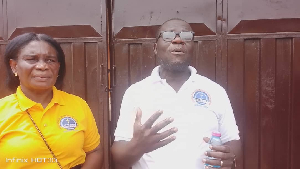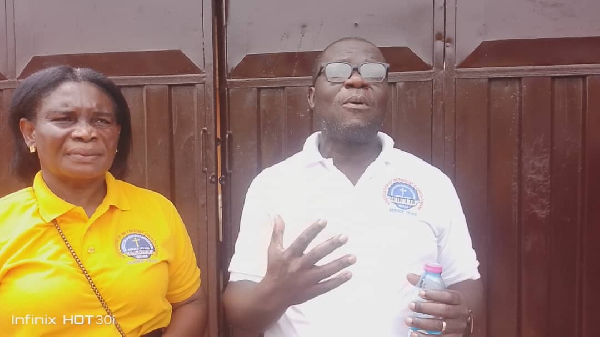 Professor Samuel Nortey’s evangelism initiative
Professor Samuel Nortey’s evangelism initiative
Professor Samuel Nortey, 1st Vice Connectional Chairman of the Association of Methodist Church Choirs (GHAMECC – Ghana) and lecturer at KNUST, has praised the growing success of “The Robe Must Go To Town,” an evangelism initiative launched in November 2022 by the Kumasi Diocese of the Methodist Church Choir. According to him, the program has exceeded expectations.
Professor Nortey, one of the lead founders of the initiative, shared his enthusiasm during an edition of the program hosted by the Pankrono Circuit in Mamponteng.
He emphasized that the initiative’s success stems from its innovative approach to reaching individuals outside traditional church settings. “‘The Robe Must Go To Town’ was created during my tenure as Chairman of the Kumasi Diocese of the Methodist Choir,” Professor Nortey explained. “It has been remarkable to see it attract not only choristers, but also lay executives, church members, and even Reverend Ministers.” He noted that the program has become a powerful tool for reaching people who might not ordinarily attend church services.
Designed to transform traditional revivals into active community engagement, “The Robe Must Go To Town” aims to bring the church into public spaces. Rooted in the concept of “bring one to the Lord,” the program uses the choir’s musical talents and spoken word to minister to those yearning to hear the gospel.
Since its inception, the initiative has seen several successful outings.
“The program began with visits to areas like Adum. While the early events had modest success, subsequent outings gained traction and sparked greater interest,” Professor Nortey recalled. “The impact continues to grow as more people hear the message.”
He further elaborated on the program’s expansion and growing adoption by other dioceses at the choir level. A key moment in its growth came when Professor Labi, the Lay Chairman, championed the cause, leading the Lay Movement Council to organize a recent edition of the program. This event saw unprecedented participation from various church groups, including the men’s and women’s fellowships. Despite heavy rain, people from all walks of life attended, demonstrating the initiative’s broad appeal.
Explaining how the evangelism is carried out, Professor Nortey said, “The program involves singing, sharing gospel tracts, and delivering spoken word messages. The team also conducts house-to-house evangelism—praying with residents, sharing tracts, and collecting names of those who express interest in knowing more about God. These contacts are then handed over to local circuit officers for follow-up and integration into nearby societies.”
He added that close collaboration with local circuit officers has been vital to organizing events and supporting new converts. The recent collaboration with the Pankrono Circuit, which facilitated the use of the Mamponteng Palace, was highlighted as a model of this cooperation.
Professor Nortey expressed satisfaction with the dedication of the choristers and their commitment to expanding the reach of the initiative.
Outlining his vision for the future, he shared, “The long-term goal is to expand the initiative even further, involving more church organizations and, eventually, the clergy. The aim is to truly embody the ‘bring one to the Lord’ concept by continuously reaching out and connecting with people beyond the walls of the church. Even if just one person is saved, it is worth the effort.”


